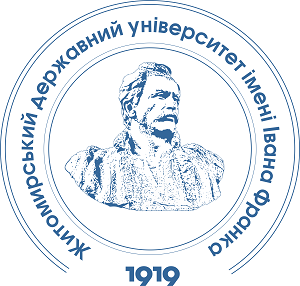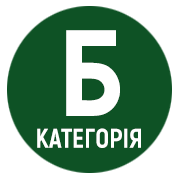COLLECTIVE TRAUMAS OF UKR AINIANS AND NATIONAL IDENTITY
DOI:
https://doi.org/10.32782/psy-2024-4-9Keywords:
national identity, social uncertainty, narrative, historical memory, traumatic experience, collective traumas, transgenerational traumatic experience.Abstract
Abstract. The article addresses the issue of forming an individual’s national identity under the influence of collective traumas. It examines cases of transgenerational traumatic experiences and the articulation of new traumas that Ukrainians are currently undergoing due to the war with russia. Nations are formed and strengthened through the struggle for their existence, which can manifest both in physical confrontations and in cultural and economic competitions. Ukraine’s resistance to russian aggression highlights the strength of Ukrainian national identity, which has become a source of pride for Ukrainians. The conditions of war amplify collective memory and national belonging, manifesting through heroism and self-sacrifice, contributing to the formation of the image of the Ukrainian as a fighter for independence. Historical turning points, especially tragic events, significantly impact national memory and the perception of one’s history. Ukrainian history contains many such moments, though this experience is not unique, as most nations now leading geopolitical processes have undergone similar experiences. At the level of collective memory, nations can change or suppress unpleasant memories, replacing them with mythologized versions that transform traumatic events into heroic epics. This allows for a collective coping with traumatic experiences and the creation of a positive image of national identity. The conclusions of the study emphasize the importance of properly articulating the new traumatic experiences of Ukrainians caused by russia’s armed aggression. The trauma of war may influence future relations with Russians and could lead to xenophobic perceptions, similar to what occurred with Germans following the denazification process. Proper understanding and narration of this experience can strengthen national pride, halt migration processes, enhance the sense of national belonging, and help overcome the inferiority complex promoted by Soviet imperial ideology.
References
Горностай П. П. Колективна травма як проблема соціальної та політичної психології. Проблеми політичної психології. 2018. Вип. 7. С. 54–68.
Кириченко В. В. Психологічна природа міжгрупового протистояння та еволюція суспільних відносин. Studia Politologica Ucraino-Polona. Випуск 7. Житомир-Київ-Краків : Вид. О. О. Євинок, 2016. C.312–323
Кириченко В. В. Суспільна інтеграція та протистояння у межах спільної історії України та Польщі. Теорія і практика сучасної психології. 2018. № 1. С. 45–51.
Кириченко В. В. Історична пам’ять українців: до проблеми психологічного вивчення українсько-польського протистояння та примирення. Посттравматичний стресовий розлад: дорослі, діти і родини в умовах війни : міжнародне науково-практичне видання / за заг. ред. І. Маноха, Г. Собчук. Том ІІ. Варшава-Київ : ПАН Гнозис, 2018. С. 43–57.
Мазяр О. «…он чєловєк нє совєцкій»: хроніка державного злочину. Житомир : Вид-во ТОВ «Видавничий Дім “Бук-Друк”», 2022. 414 с.
Чачко С. Л. Психічна травма і посттравматичне зростання особистості як чинники соціальних змін. Наукові студії із соціальної та політичної психології. 2011. Вип. 26. С. 268–276.
Чачко С. Л. Психічна травма та етнічна ідентичність особистості. Наука і освіта. 2011. № 1. С. 87–90.
Gorbunova V., Klymchuk V. The Psychological Consequences of the Holodomor in Ukraine. East/West: Journal of Ukrainian Studies. 2020. Vol. VII. № 2. P. 33–61.






